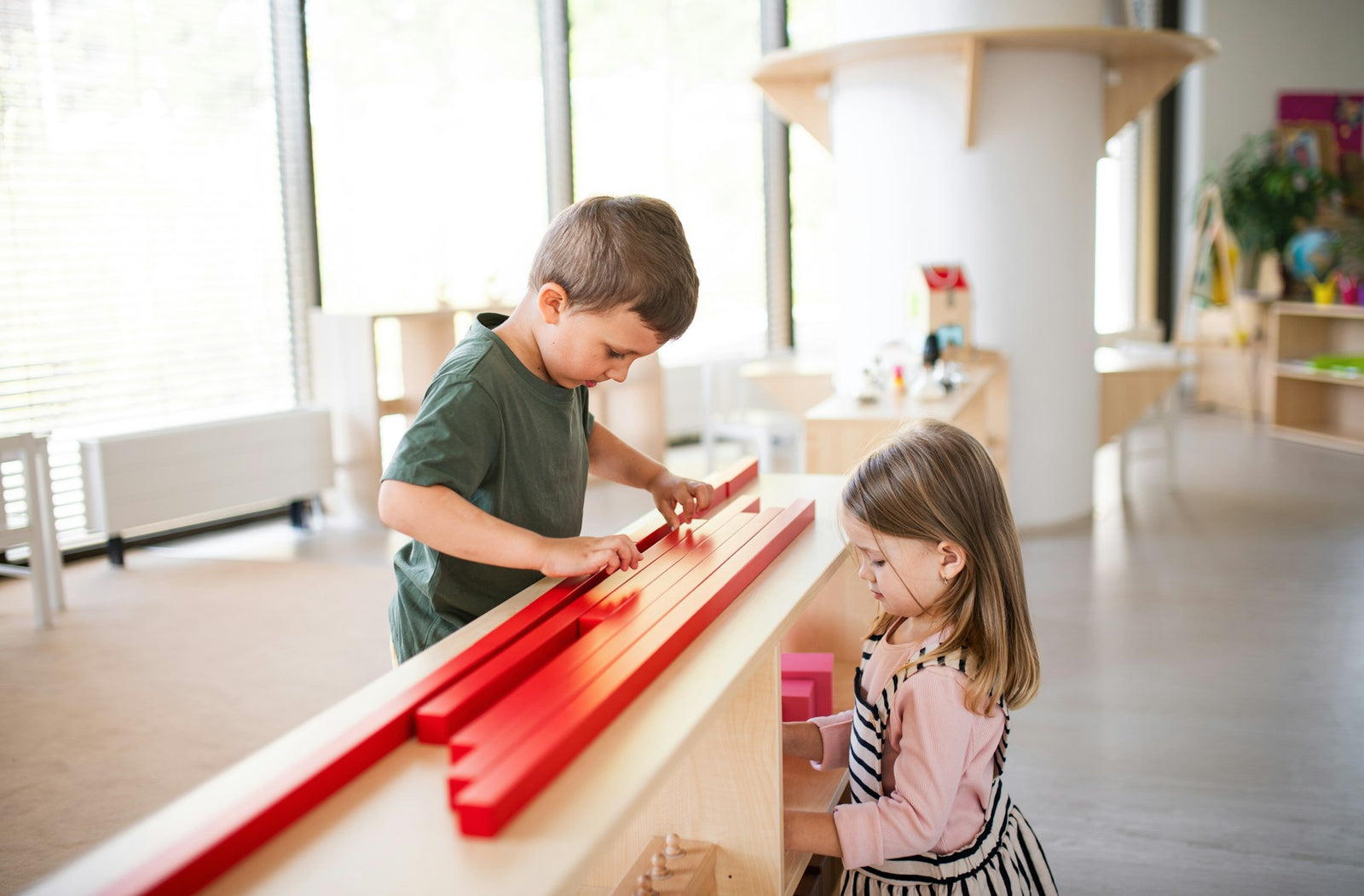How Montessori Tools Aid in Developing Early Childhood Independence

From the moment children enter the world, their journey towards independence begins. As caregivers, we strive to nurture this growth in a way that respects their natural development and fosters a sense of self-sufficiency. The Montessori method, with its emphasis on creating environments that allow children to explore and learn at their own pace, offers a powerful framework for encouraging independence from a very young age. By integrating specific Montessori tools and principles into our homes, we actively support our children's ability to do things for themselves, enhancing their confidence and competence.
At the core of the Montessori philosophy is the belief that children learn best in an environment that respects and nurtures their individual growth. This means providing spaces that are safe, accessible, and scaled to their size, filled with materials that cater to their development stages. By doing so, we not only promote their physical and cognitive development but also empower them to take the initiative in their learning journeys. Such an environment doesn't just prepare them for the challenges of the later years; it also instills a lifelong love for learning and a firm belief in their capabilities.
Furthermore, the choice of Montessori toys and materials plays a pivotal role in cultivating early independence. These materials are designed to be self-correcting and appealing to the senses, promoting engagement and perseverance. By carefully selecting tools that align with the natural interests and developmental milestones of young children, we can create a home environment that encourages them to explore, experiment, and master skills independently. This foundational experience of autonomy not only supports their immediate learning needs but also builds the resilience and adaptability they will rely on throughout their lives.
The Role of Montessori Tools in Fostering Independence
The carefully designed Montessori tools play a vital role in fostering independence among young learners. These tools aren't just toys; they are scientifically crafted to meet the developmental needs of children, enabling them to explore and learn autonomously. The inherent design of Montessori materials encourages children to correct their mistakes independently without adult intervention. This self-correction process is crucial as it builds confidence and the ability to tackle challenges independently. For instance, using materials like the Montessori cylinder blocks, children learn to discriminate different dimensions, practicing problem-solving skills that are essential for self-guided learning. Each tool is designed to be inviting with an aesthetic simplicity that draws children to engage with minimal adult direction, paving the way for them to manage their learning experiences and nurture their problem-solving skills.
Key Montessori Materials for Developing Self-Sufficiency
To foster an environment that nurtures self-sufficiency, certain Montessori materials stand out for their effectiveness. First, Practical Life Materials are fundamental. Items like dressing frames help children learn everyday skills such as buttoning or tying shoelaces, which are crucial for building independence. Secondly, Sensorial Materials such as sandpaper letters and color tablets engage children's senses and enhance their perception skills, vital for independent exploration and learning. Moreover, Math Materials, including the famous Montessori beads and number rods, allow children to explore numbers and basic arithmetic at their own pace, promoting not just understanding, but also confidence in their abilities to solve problems independently. These materials empower children by making abstract concepts tangible, thereby supporting their intellectual growth and independence in a profound and lasting way.
Both sections explore how Montessori tools and materials facilitate an independent growth environment by focusing on autonomy and self-correction inherently encouraged by Montessori methodology. The aim is to cultivate spaces where children feel empowered to explore and learn without unnecessary intervention, thus promoting a lifelong love of learning and self-reliance.
Setting Up an Independent Learning Environment at Home
Creating an environment at home that supports Montessori principles doesn’t have to be complex or expensive. It begins with embracing the idea of accessible, child-sized spaces that encourage autonomy and self-learning. We focus on crafting areas that are safe and tailored to a child’s size and capabilities, which can significantly foster independence. For instance, low shelves stocked with Montessori materials are not only safe but also allow children the freedom to choose their activities, fostering decision-making skills. Additionally, ensuring that all tools and materials are within reach encourages the child to engage in tasks independently and safely return items to their designated spots. This orderliness and accessibility teach organizational skills and responsibility while providing children with the confidence to learn independently.
Practical Activities Using Montessori Tools to Enhance Autonomy
Structured practical activities are essential components in utilizing Montessori tools to boost a child’s autonomy. These activities could include simple tasks like sorting colors, which can be approached creatively by asking children to find objects around the house that match specific Montessori color tablets. Another activity involves using the Montessori dressing frames to practice tying, buttoning, and zipping, all of which are daily self-care skills that empower children towards self-sufficiency. Furthermore, incorporating counting games with Montessori beads encourages not only mathematical skills but also the autonomy to explore complex concepts at their own pace. These activities, designed to be child-led, enhance critical thinking and problem-solving skills, directly contributing to a child’s sense of independence.
Final Thoughts
Throughout the journey of fostering independence in early childhood, the role of Montessori tools and principles is undeniably significant. By integrating these elements into our daily routines and spaces at home, we provide our young ones with the confidence and competence to explore and grow independently. It’s through these thoughtful engagements and environments that skills such as problem-solving, decision-making, and self-care are nurtured from a very early age, setting a solid foundation for lifelong learning and independence.
At The Topponcino Company, we understand the importance of supporting early independence, providing parents and educators with resources, tools, and guidance to integrate the Montessori philosophy effectively. Visit our website to explore how our range of Montessori-inspired products can complement your efforts to create an enriching learning environment for the children in your care.












